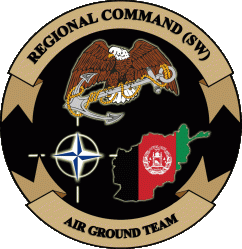Story by Staff Sgt. Brian Buckwalter
CAMP LEATHERNECK, Afghanistan — Secretary of Defense Leon Panetta gave a strong message of support to service members during a town hall meeting at Camp Leatherneck, March 14.
“We will not fail,” said Panetta to the nearly 200 Marines and Afghan forces in attendance.
He made his remarks before visiting a nearby combat outpost and Afghanistan’s capital, Kabul, where he’s scheduled to meet with the country’s president, Hamid Karzai and other senior leaders.
“This is probably the broadest and the deepest international military coalition that we’ve seen in a long, long time,” he said. “Fifty nations that are working together to bring together a very strong international effort to try to bring some peace, some justice and hopefully some security to Afghanistan and to the world.”
Camp Leatherneck is in Helmand province, which is a part of the Regional Command Southwest area of responsibility. Violence in the region is down 31 percent from this time last year. In some areas of RC (SW), the secretary said, violence is down 80 percent.
“This was the Taliban’s stronghold,” Panetta said. “And because of your work, because of your dedication, because of the tremendous sacrifice you’re making, the reality is that we are achieving greater stability and greater security in this area.”
The efforts, successes, and sacrifices in the region aren’t just made by the U.S. and other coalition nations. Afghan forces are playing an increasingly larger role in their own security.
“The Afghan forces are doing an outstanding job throughout Afghanistan because of the partnership you’ve built out here,” said Panetta. “You train, you fight together, and you’re willing to put your lives on the line together. Afghan forces continue to take charge and head up operations, and you’ve made that possible. By working with them, by training with them, more than 90 percent of the operations are now partnered with the ANSF. That’s a remarkable achievement.”
In recent weeks, Afghanistan has been a focal point of attention because of increased violence in the country.
“As tragic as these events of violence have been, they do not define the relationship between the coalition and the Afghan forces and the Afghan people. What you are doing out here every day determines that relationship,” Panetta said.
The defense secretary reaffirmed the commitment the U.S. has to finishing the mission in Afghanistan, saying that the resolve of coalition forces will not be undermined by individual events.
“We will be challenged,” said Panetta. “We will be challenged by our enemy. We will be challenged by ourselves. We will be challenged by the hell of war itself. But none of that must ever deter us from the mission that we must achieve. That mission is the dream that I talk about. The dream of making sure that we can provide our children – that we can provide children of Afghans – a better life for the future.”
Panetta traveled to Combat Outpost Shukvani after the town hall. There he met with Georgian troops and praised them for the work they’ve been doing in the area and for their sacrifices. He also read them a letter from their recently injured battalion commander.
This is Panetta’s third trip to Afghanistan since assuming his office in July, 2011.

